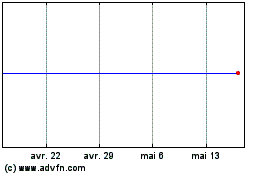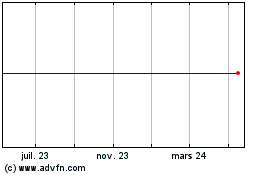Ongoing complaints about misinformation and hate speech on the
internet are forcing social-media companies to confront whether
they need to take more responsibility for the content on their
sites.
Twitter Inc. on Tuesday said it would let users block
notifications of tweets that include specific words, among other
moves, in an effort to combat harassment on the short-messaging
service.
On Monday, Facebook Inc. said it would bar websites that post
fabricated or misleading news articles from using its ad-selling
tools. But it is unclear how Facebook will identify those sites,
and they might still appear in the more-heavily-trafficked news
feed, a source of news for 44% of Americans, according to Pew
Research.
Both the Twitter and Facebook moves may fail to address many
users' concerns. They show technology companies that have grown
into powerful media voices struggling to find a balance between
being havens for misinformation and censors of free speech.
Concerns about false news stories on Facebook intensified during
the recent presidential election campaign after erroneous claims
were shared widely on the network, such as reports that Pope
Francis had endorsed Donald Trump and that the Clinton Foundation
bought $137 million in illegal arms.
Some critics say the social-media sites should do more to
promote accuracy and civil discourse. But the companies are wary of
prescribing what their users should read or how they should
act.
Facebook Chief Executive Mark Zuckerberg in a Facebook post on
Saturday played down the impact of fake news, while also saying
that his company is developing tools to curb it, including one that
would allow users to flag news that they believe is fake.
But Syracuse University communications professor Jennifer
Grygiel, who studies social media, said relying on users is
inadequate. Instead, she said Facebook should hire more workers to
review widely shared articles and remove those that are false.
"What he needs to do is hire more humans instead of pushing (the
responsibility) onto the end user," Ms. Grygiel said. "Know how
much the community is trained in identifying fake news? Zilch."
In his Saturday post, Mr. Zuckerberg said Facebook won't try to
separate fact from fiction, because defining the truth is
complicated. "We must be extremely cautious about becoming arbiters
of truth ourselves," he wrote.
Karen North, director of the social-media program at the
University of Southern California, agreed.
"Do you really want Facebook and Twitter deciding what you can
talk about?" she asked. "It's a slippery slope and these companies
already have massive control over what we see and what we
don't."
Facebook has strained to appear objective, particularly after
reports in May that certain politically motivated workers prevented
conservative news from appearing in its "trending topics"
feature.
Executives have been uneasy about taking steps that suggest
Facebook is restricting free speech, current and former employees
say. That has stirred dissent within the company, with some
employees urging Facebook to do more to weed out misinformation,
according to two people familiar with the matter. They said the
topic was discussed during an all-hands meeting Thursday with the
32-year-old CEO.
Google parent Alphabet Inc. had largely avoided the controversy
around internet propaganda, because it doesn't operate a thriving
social network and because its search engine rewards websites that
are linked to by established sites.
Still, the company was pulled into the debate on Sunday when a
post from a little-known right-wing blog erroneously stating that
Mr. Trump defeated Hillary Clinton in the popular vote appeared
atop the Google search results for several election-related
queries. Mrs. Clinton is leading by almost 700,000 votes in the
Journal's tabulation.
"In this case we clearly didn't get it right, but we are
continually working to improve our algorithms," a Google
spokeswoman said in an email.
On Monday, shortly before Facebook's similar announcement,
Google said it would ban fake-news websites from using its
ad-selling system, likely hurting those sites' revenue. Google's
AdSense program, which helps website operators sell ads on their
sites, is the most popular way to monetize websites and has helped
fund many propaganda sites. Google pulled AdSense from several
sites on Monday.
Twitter, meanwhile, has long grappled with complaints that some
users repeatedly post abusive and harassing messages. The moves
announced Tuesday include a feature that lets users block
notifications of tweets that include specific words or phrases.
Users will still see such tweets on Twitter's website and app.
When flagging problem tweets, users will be able to note that
the messages include hate speech or "targeted harassment." Users
can also now block specific conversations between other users that
include them.
Del Harvey, Twitter's vice president of trust and safety,
acknowledged the steps are "not going to solve the problem of abuse
on Twitter."
Ms. North, the USC professor, said the burden to report abuse
falls largely on the victim. "While they keep making these small
steps…there's still no major consequences for abusing anyone on
Twitter," she said.
Write to Deepa Seetharaman at Deepa.Seetharaman@wsj.com, Jack
Nicas at jack.nicas@wsj.com and Nathan Olivarez-Giles at
Nathan.Olivarez-giles@wsj.com
(END) Dow Jones Newswires
November 15, 2016 16:05 ET (21:05 GMT)
Copyright (c) 2016 Dow Jones & Company, Inc.
Twitter (NYSE:TWTR)
Graphique Historique de l'Action
De Juin 2024 à Juil 2024

Twitter (NYSE:TWTR)
Graphique Historique de l'Action
De Juil 2023 à Juil 2024
